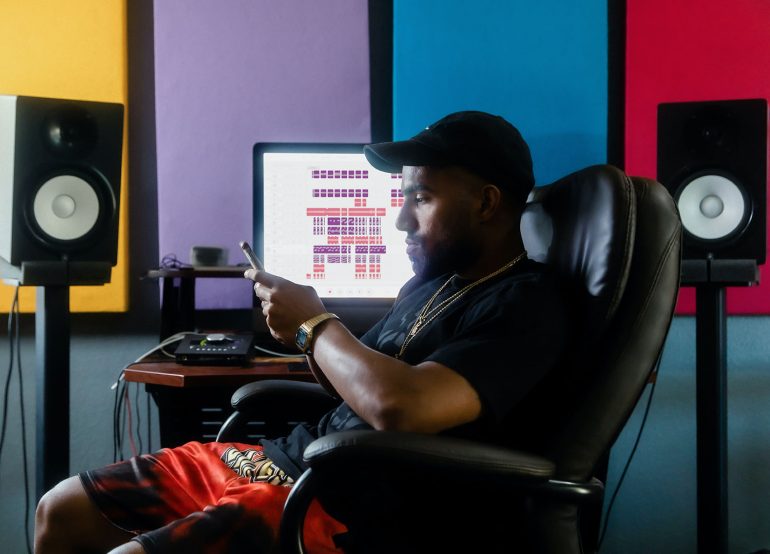Sharing a studio-space can be a fun, creative and wholesome experience. Many exceptional pieces of music are and were conceived in environments that accepted an open flow of contributors. And rightfully so – there’s a huge upside to various parties renting out a space or building a creative hub from scratch: Shared equipment, musical network growth, collegial trouble-shooting and shared creative evolution.
It’s a fragile ecosystem though, and artistic egos can get in the way of maintaining this safe, professional harbor. And while ill-will rarely arises overnight, tensions can build up over time. Especially over minuscule things, micro-conflicts that seem incidental at first, yet add up to an assortment of problems.
If you’re thinking about teaming up with a colleague or maybe even stranger to share a studio space, you might want to keep an eye on these little things. Obviously, there are also some major stepping stones that can influence and shape studio vibes.
Let’s get some rudimentary planing-points out of the way…
Empathetic studio scheduling
As a musician and creator, intensive workloads and phases can limit the ability to establish empathetic grounds of scheduling. Things can pop up, short-notice jobs or sessions that need some extra studio time, and the shared schedules can easily seem limiting, sometimes even unfair.
That’s why every studio-setup needs a smart and especially empathetic way of handling hot production and writing phases. Get your schedule on point and communicate well in advance.
The key to peaceful space-sharing is a combination of transparency in planning and flexibility of realization. Be clear about the upcoming workload, and before sugarcoating anything – paint out worst case scenarios. This way your significant-studio-other will have an idea of the factors that might be pressuring you.
Guest Accountability
Most studios are fairly open environments. And they have to be. A constant influx of talent, peers and clients establishes a vibrant atmosphere that fuels creation and professional growth.
Still, each guest has to be accounted for. Imagine a listening session, where a studio-partner invites label and management collaborators, the guests are hyped due to a satisfying result, a party-esque mood erupts and somebody starts toying with in-house, shared equipment. Maybe even exposes it to dangerous substances (No drinks near the Juno. Great rule. Just some food for thought.). Imagine the conflict arising from this one-sided experience.
Make sure there’s an understanding that accountability for each guest lies with the person who extended the invitation, the studio-host so to speak. Lay out the rule for that early on, and things will run more smoothly even if sudden events and external factors (clumsy guests) happen to interfere with your studio zen.
Studio Gearluv
Here’s a rule of thumb: Treat every piece of studio equipment equally.
So just assume that everything that’s there has quality to it. Handle every piece with care and hindsight. Don’t just assume that something is of lesser value, can be rough-handled or neglected, just because it lacks material value.
Great studios have the tendency to cherish the most minuscule elements, because they should: One broken cable can interfere with, sometimes even hinder an entire production. Never underestimate the value of things, even if they are as low-key as a simple midi-cable. If all others are defective, this one, last cable will act as a saving grace.
Consumption rules
Even though it’s a professional activity – creating music should always, to some extent, feel like a life-activity, like something as important as eating, sleeping etc.
This means that you create an environment where different modes of consumption merge: Eating, drinking, possibly also other substances, they all merge in a place that is very different from any other workplace, especially ordinary ones.
And the more comfortable people get – which should be a goal – the more at home they feel, naturally. But every home is different, just like every lifestyle is different. You can’t expect somebody to just naturally commit to the same consumption rules that you adhere to when you’re in a delicate environment. So – spell it out.
To keep a shared studio-space comfortable, you have to entertain the possibility of various, differentiating lifestyles. Find a common ground to act upon.

